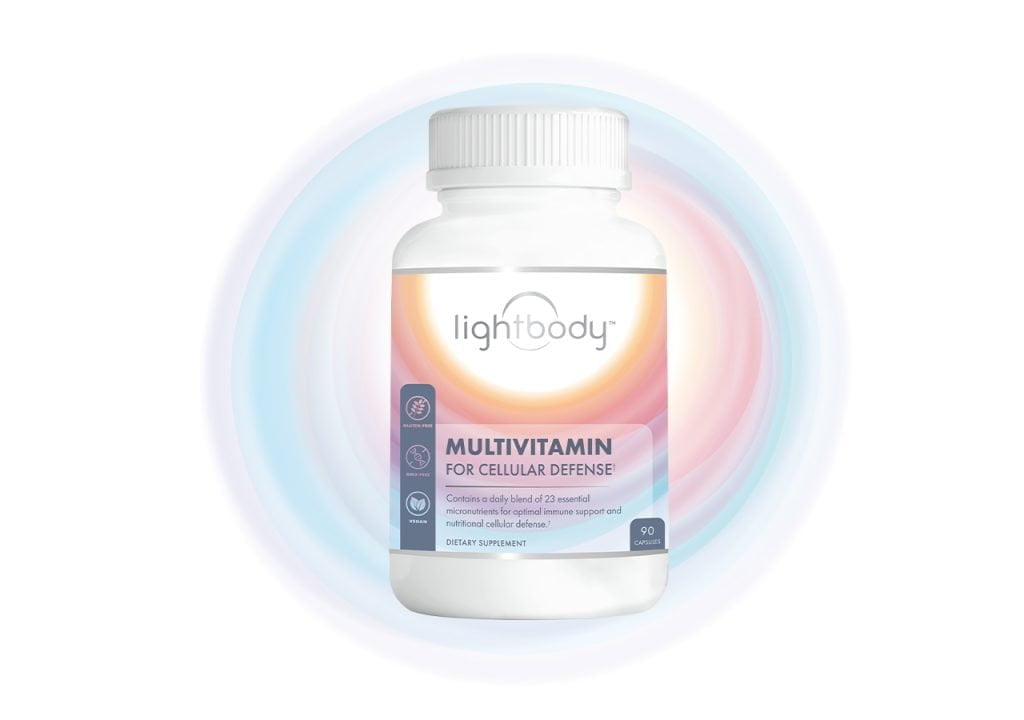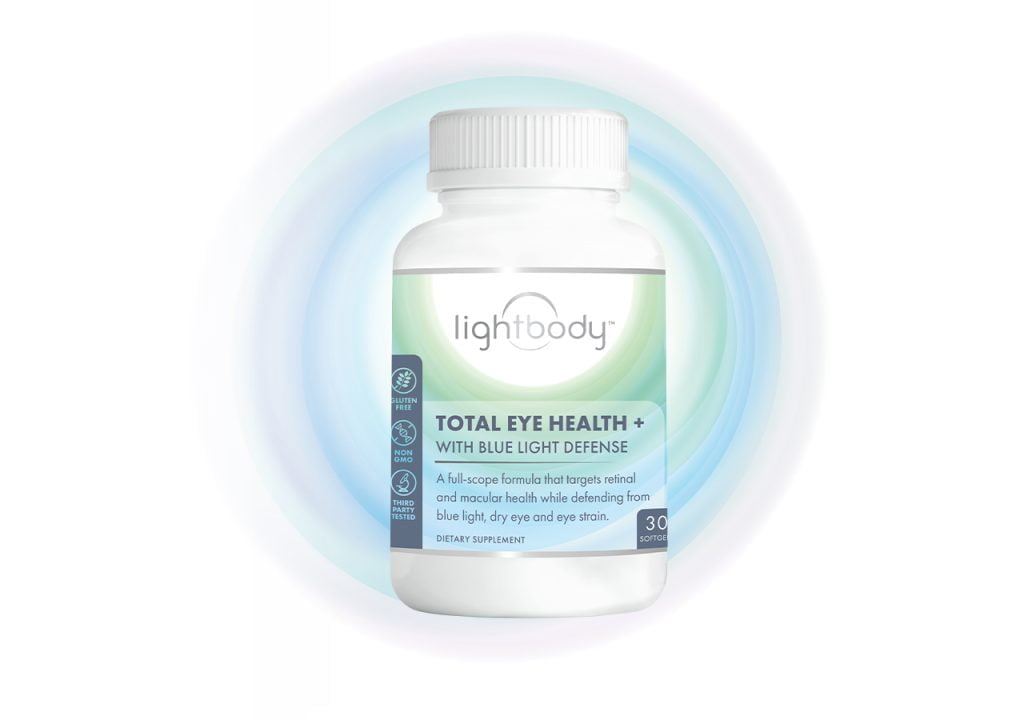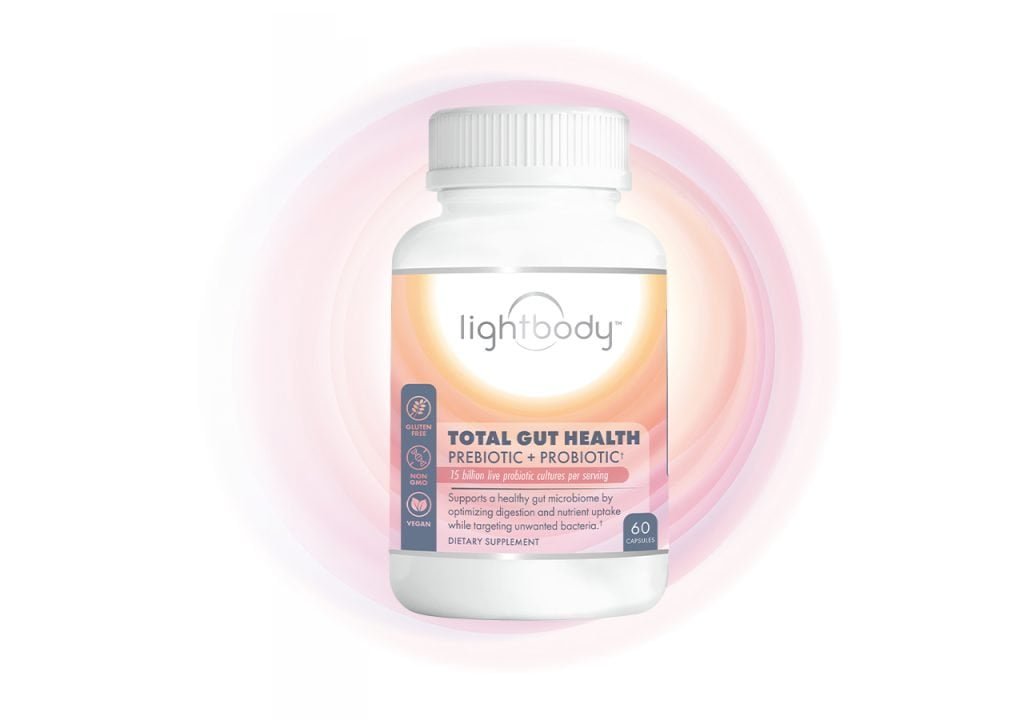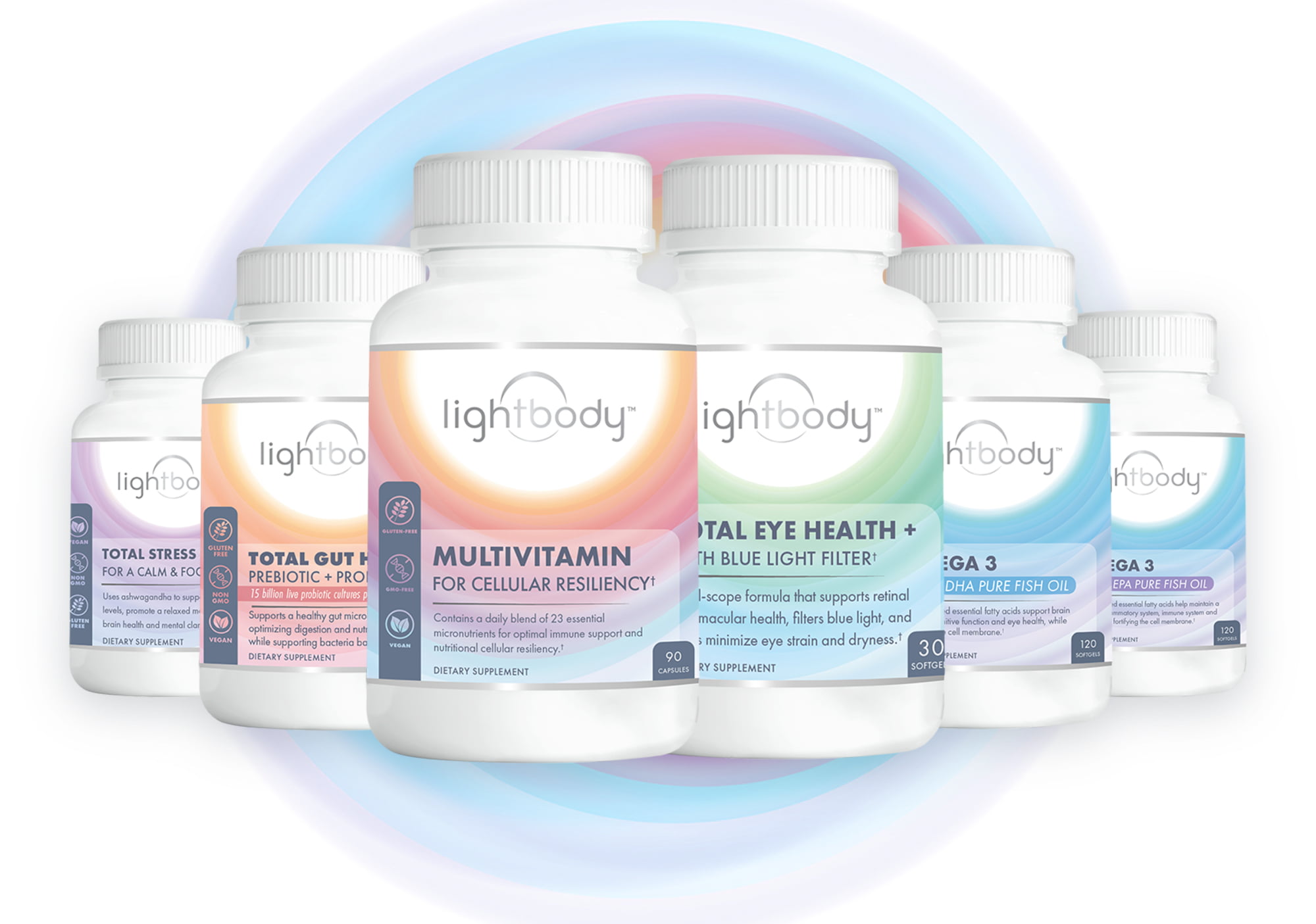In the realm of mental health, women often navigate challenges that frequently go unnoticed by their male counterparts. We already know about women’s health issues, but it is important for us to shine a light specifically on mental health.
The gravity of these issues, such as depression and anxiety, is sometimes understated, despite women being more susceptible to severe consequences. The lack of adequate recognition and response can exacerbate these problems, and lead to even more issues.
Startling statistics from the Office on Women’s Health most recent research reveal that over 1 in 5 women in the United States experienced a mental health disorder during 2021, and it wouldn’t be surprising to see this percentage increase.
As we delve deeper into our blog, we aim to highlight the distinctive mental health concerns that women confront. Knowledge is the first step in addressing many of these issues!
Before we start, if you have any negative feelings or concerns, please consult a health professional.
In this article, you’ll learn:
- Gender Dynamics in Mental Health
- Factors That Contribute to the Development of Mental Health Conditions
- Symptoms of Mental Health Issues
- Common Mental Disorders Among Women
- Impact of COVID-19 Pandemic on the Mental Health of Women
- Demographic Influences on Mental Health: Beyond Gender
- Women’s Mental Health Month
- Mental Health Resources
Gender Dynamics in Mental Health
The emergence of mental health challenges typically results from a blend of genetic factors and an individual’s societal roles and experiences. Both men and women undergo distinct life experiences, and the interplay between biology and external influences plays a pivotal role in shaping the development of mental health.
Distinct gender differences contribute to unique conditions in women and men. Women, for instance, face the potential physical and mental challenges associated with pregnancy. Biological variations in male and female brains alters the experiences one may have.
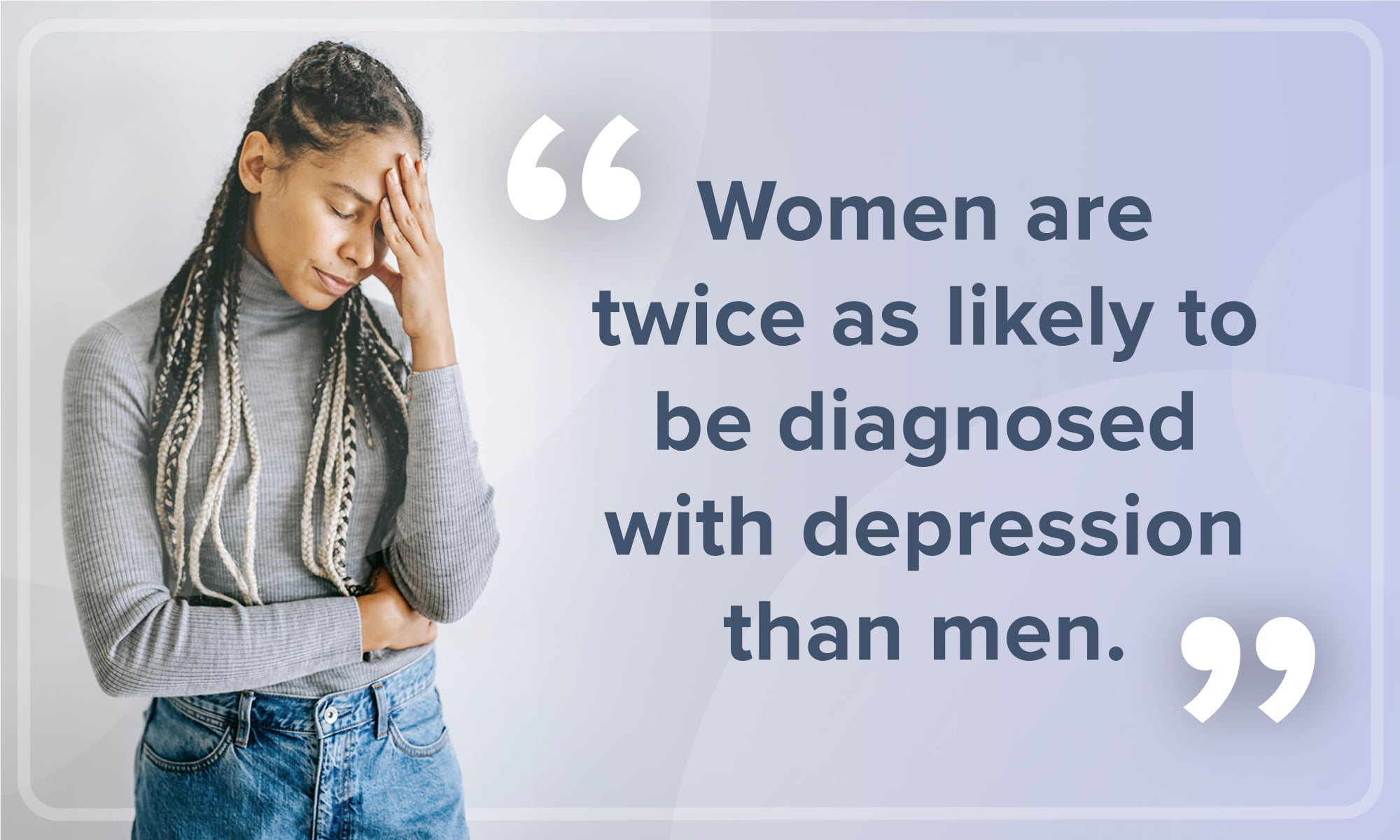
Increasing research underscores the impact of gender on mental health development. Several conditions, including eating disorders and bipolar disorder, impact women more frequently or manifest differently in women than to men. Another startling statistic for you: women are twice as likely to be diagnosed with depression than men.
The expanding body of research emphasizes the necessity of understanding how gender influences mental health needs.
Now, let’s dive into women’s mental health!
Factors That Contribute to the Development of Mental Health Conditions
Exploring the intricate network of factors that influence mental health, this section investigates the multifaceted contributors that play a pivotal role in the development of mental health problems in women.
From external influences to hormonal fluctuations, understanding these diverse elements is paramount in fostering comprehensive and effective mental health care.
Environmental Factors
Contributing factors to the development of mental illness in women are diverse and often interconnected, highlighting the need for a holistic approach to care. External elements in the environment may play a role in the development of mental health problems.
Poverty can be a significant stressor, limiting access to resources and increasing the likelihood of mental health challenges.
Isolation—whether social, emotional, or geographical—can intensify feelings of loneliness and despair, exacerbating these issues.
Instances of physical abuse and sexual violence can leave lasting emotional scars, fostering conditions like post-traumatic stress disorder (PTSD) and depression.
The societal pressure and unrealistic standards surrounding body image and beauty contribute to the prevalence of eating disorders among women.
The pervasive impact of trauma is notable, with experiences such as childhood trauma or domestic violence playing a substantial role in health outcomes.
Physical Factors
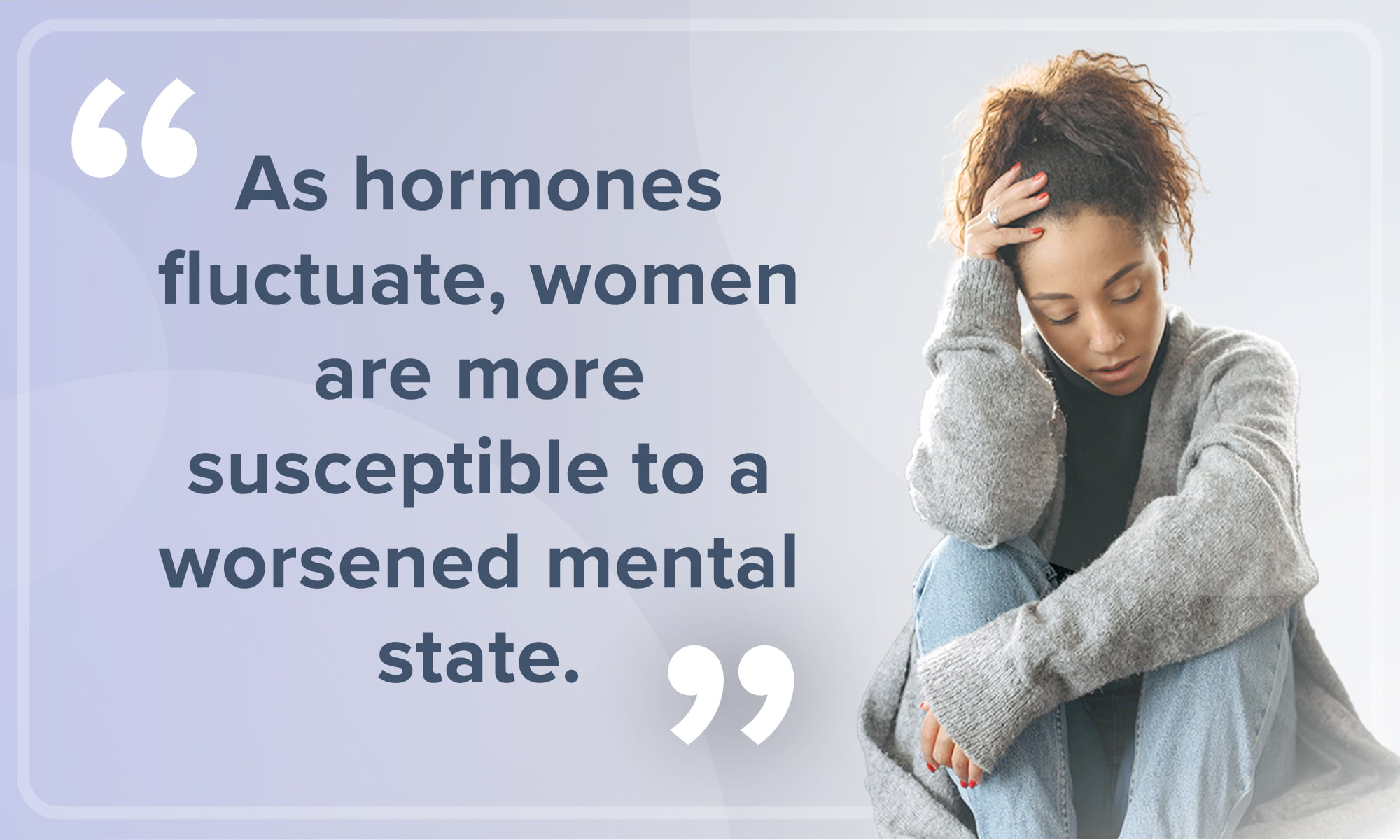
In addition to environmental factors, hormones also play a role as to why mental health issues affect women differently than men.
As hormones fluctuate, women are more susceptible to a worsened mental state. Estrogen, the female sex hormone, helps to regulate mood. A drop in estrogen levels—whether that’s related to the variations of the monthly cycle, menopause, or something else—can lead to depression and anxiety.
Other specific mental issues related to hormonal changes include premenstrual dysphoric disorder (a more serious version of PMS) and perimenopause-related depression for example. More on this later on in the blog.
Symptoms of Mental Health Issues
There are many different types of mental health issues, and they manifest in everyone differently. Every person is unique, and the impact on a person’s overall well-being will vary. Below are some of the common symptoms women may experience if they are coping with negative mental health:
- Sustained feelings of profound sadness or an enduring sense of hopelessness.
- Observable shifts in mood, energy levels, or eating patterns.
- Difficulty falling asleep or excessive sleep, leading to changes in sleep patterns.
- Appetite or weight changes.
- Substance misuse involving alcohol, drugs, or a combination of both.
- Decreased energy or persistent fatigue.
- Excessive fear or excessive worrying.
- Seeing or hearing things that are not real.
- Extreme mood swings characterized by heightened highs and lows.
- Unexplained physical discomfort such as aches, headaches, or digestive issues.
- Displays of anger or heightened irritability.
- Withdrawal from social interactions.
- Thoughts or behaviors that disrupt work, family, or social engagements.
- Thoughts of death, suicidal thoughts, or actual suicide attempts.
Common Mental Disorders Among Women
In the broader landscape of women’s mental health, let’s explore the common mental health disorders that often shape their experiences. From depression to the intricacies of hormonal conditions, we aim to provide insights into the diverse challenges women may encounter and foster a greater understanding of their mental well-being.
Depression
Research suggests that women may experience depression more frequently than men, and several factors contribute to this observed trend.
The Center for Disease Control (CDC) reported that 1 in 10 women showed symptoms of depression within the last year. Hormonal fluctuations, such as those during the menstrual cycle, pregnancy, postpartum period, and menopause, play a role in female’s susceptibility to mood disorders.
Societal expectations and gender norms may influence how women cope with stress and express emotional distress, potentially leading to higher rates of reported depression. Women often place a strong emphasis on interpersonal relationships and may seek social support, but this reliance on connections can also expose them to additional stressors.
Maternal Mental Health: Perinatal Depression
Perinatal depression, a condition that affects women during pregnancy and in the postpartum period, is a complex and often under-recognized health concern.
Symptoms include persistent feelings of sadness, anxiety, and emotional distress, with the potential to have significant consequences for both the mother and the child.
Postpartum Depression
Postpartum depression, distinct from perinatal depression, specifically refers to the onset of depressive symptoms after childbirth. Hormonal fluctuations, sleep disturbances, and the demands of new motherhood contribute to the vulnerability of women to postpartum depression.
Unlike the baby blues, which involve transient mood swings in the initial weeks after childbirth, postpartum depression persists and can significantly impact the ability of new mothers to function in her daily life and form a strong emotional connection with her baby.
Premenstrual Dysphoric Disorder (PMDD)
PMDD is a severe and debilitating form of premenstrual syndrome (PMS) that significantly affects the mental health of women. Women with PMDD may experience intense mood swings, severe irritability, feelings of hopelessness, and heightened sensitivity to rejection.
The impact of PMDD extends beyond the menstrual cycle, affecting daily functioning and interpersonal relationships.
Bipolar Disorder
Bipolar disorder, previously termed manic-depressive illness, is characterized by extreme mood episodes. Women with bipolar disorder may experience episodes of mania, with heightened energy, increased activity, and an elevated mood, as well as episodes of depression, marked by profound sadness and low energy levels.
Hormonal fluctuations during the menstrual cycle, pregnancy, and menopause can impact the severity of these symptoms in women.
Eating Disorders
These include anorexia, bulimia nervosa, and binge eating disorders. For decades, society has idolized a certain body type. In the fifties, it was the curvy hourglass figure. In the 1990s, women were expected to be extremely thin.
At the end of the day, there is no perfect body type, but women still feel the pressure to fit into society’s image, unfortunately leading to eating disorders.
Trauma
Women may experience various forms of trauma. Trauma can manifest in different ways, such as physical or sexual violence, emotional abuse, discrimination, or the experience of conflict.
Survivors of trauma may grapple with persistent feelings of fear, anxiety, or flashbacks, impacting their ability to trust others and navigate relationships.
Unaddressed trauma can contribute to conditions like PTSD, depression, and anxiety.
Substance Use Disorders
Women experiencing substance abuse may find themselves entangled in a web of physical and psychological challenges.
The reasons for substance abuse among women vary and can be influenced by factors such as trauma, societal pressures, or attempts to cope with stress. Substance abuse not only poses serious health risks but can also strain relationships, impact professional and familial responsibilities, and exacerbate mental health issues.
Pregnant women face additional concerns, as substance abuse during pregnancy can lead to severe consequences for both the mother and the unborn child.
Sociocultural Imbalances
There are often sociocultural imbalances that pervade various aspects of the lives of women, impacting their mental health. Deep-seated gender norms, stereotypes, and societal expectations can create disparities in opportunities, access to education, and professional advancement.
Persistent wage gaps, gender-based violence, and limited representation in leadership roles contribute to feelings of inequality and frustration. Additionally, cultural expectations regarding caregiving and familial roles can create additional pressure for women.
To put it simply: women are expected to do a lot. Some may even describe females as “superwomen.” So much so, Marjorie Shaevitz coined the term “Superwoman Syndrome” to describe women who try to do it all and neglect themselves in the process. This can lead to mental health issues, including bouts of irritability, sleep problems, memory issues, anxiety, and the inability to concentrate.
Impact of COVID-19 Pandemic on the Mental Health of Women
During the COVID-19 pandemic, everyone’s mental health took a toll, but women felt it more severely for a myriad of reasons.
The unprecedented global crisis brought about increased caregiving responsibilities, as schools and childcare facilities closed, placing an additional burden on many women who already bore a significant share of domestic responsibilities.
Economic uncertainties and job losses disproportionately affected industries where women are overrepresented, contributing to financial stress and insecurity. Social isolation resulting from lockdowns and physical distancing measures intensified feelings of loneliness and disconnection.
Women also experienced increased trauma: domestic violence incidents in the U.S. increased over 8% during the pandemic stay-at-home orders. Because women have a higher rate of PTSD associated with domestic and sexual violence, they are twice as likely to experience this than men.
There was a glaring lack of adequate domestic and emotional support throughout the pandemic that left women in vulnerable positions—and their mental state suffered as a result.
Demographic Influences on Mental Health: Beyond Gender

Every person has a unique and different experience with their health. And though this is a blog discussing mental health of women, it’s equally as important to note that men experience their own distinct health concerns too.
Beyond gender, the following demographic factors may also impact a person’s mental health:
- Socioeconomic status is a significant determinant, as individuals facing poverty or financial instability may encounter elevated stressors and limited access to resources and support.
- Educational attainment also plays a role, with those facing barriers to education potentially experiencing heightened challenges.
- Age can influence mental health, with distinct concerns for children, adolescents, adults, and seniors.
- Cultural background and ethnicity contribute to diverse perspectives on mental health, influencing stigma, help-seeking behaviors, and access to culturally competent care.
- Sexual orientation and gender identity can impact mental health, with members of the LGBTQ+ community often facing unique problems.
- Geographic location, rural or urban settings for example, may influence access to services and increase feelings of isolation.
Recognizing and addressing these multifaceted demographic factors is essential for fostering inclusive, equitable mental health care tailored to the diverse needs of individuals across various demographic groups.
Women’s Mental Health Month
While there isn’t a designated Women’s Mental Health Month, it’s essential to emphasize that the entire year is an opportunity to prioritize and advocate for women’s mental health. Let’s engage in ongoing conversations, destigmatize seeking help, and build a supportive community.
Mental Health Resources
Seeking support and guidance is a crucial step in the journey towards mental well-being. Below, we’ve compiled a list of essential mental health resources, each with its unique focus and expertise. Whether you’re in need of immediate crisis counseling, maternal support, disaster-related emotional assistance, or veteran-specific care, these helplines are available 24/7.
Don’t hesitate to reach out—help is just a call or text away. Additionally, please seek treatment and consult health care professionals if you have any concerns.
- 988 Suicide & Crisis Lifeline: This lifeline offers confidential emotional support to individuals experiencing suicidal crisis or emotional distress across the United States. Dial or text 988 to reach a trained crisis counselor, and support is also accessible through live chat.
- National Maternal Mental Health Hotline: Providing free and confidential mental health support for mothers and their families throughout the prenatal, perinatal, and postpartum periods. Call or text 1-833-TLC-MAMA (1-833-852-6262) to connect with counselors at any time. English- and Spanish-speaking counselors are available.
- Disaster Distress Helpline: This helpline by the Substance Abuse and Mental Health Services Administration offers immediate crisis counseling for those facing emotional distress due to natural or human-caused disasters. The helpline is free, multilingual, confidential, and operates all the time. Call or text 1-800-985-5990.
- Veterans Crisis Line: A free and confidential resource for veterans of all ages and circumstances. Call 988, then press 1; text 838255; or chat online for support.
- NIH Health Info Lines: Additional health information lines provided by the National Institutes of Health (NIH).
Frequently Asked Questions
Women’s mental health is increasingly recognized as a critical issue, but it still faces challenges in being taken as seriously as needed. Issues such as societal stigma, underdiagnosis, and the tendency to attribute women’s mental health symptoms to hormonal changes or emotional instability can hinder effective treatment and awareness. However, growing advocacy and research are improving the visibility and understanding of women’s mental health needs.
It is not accurate to say one gender has inherently better mental health than another, as both men and women face unique mental health challenges influenced by biological, social, and psychological factors. However, studies show that men and women may experience different types of mental health issues and vary in their willingness to seek help, which affects outcomes.



